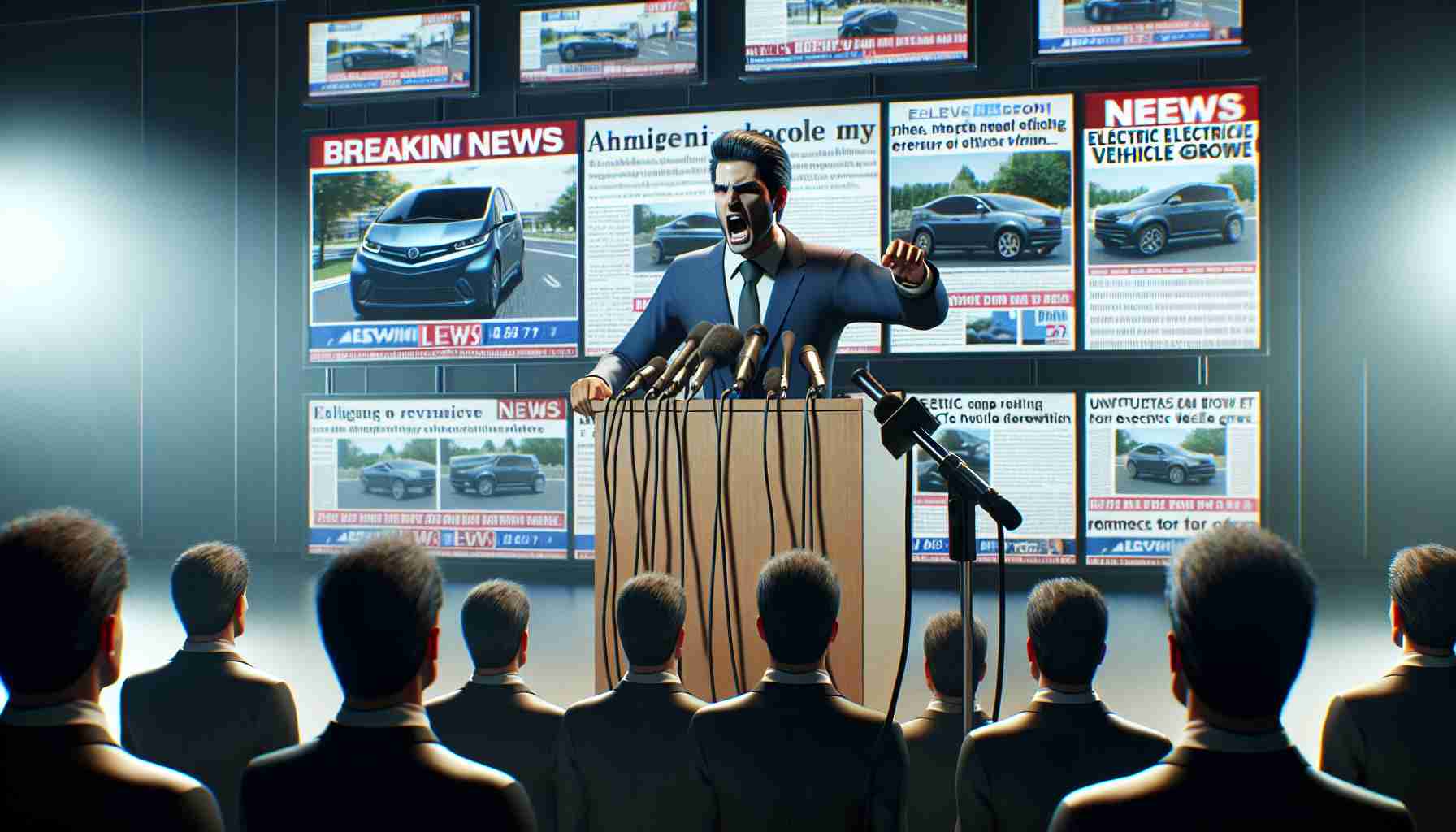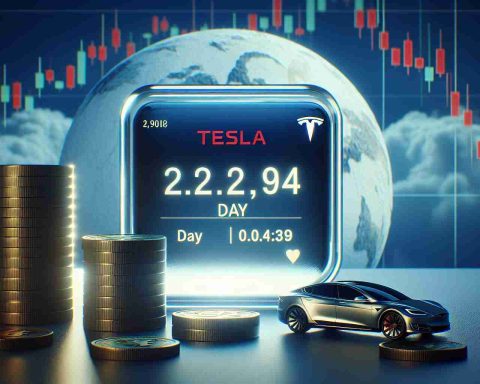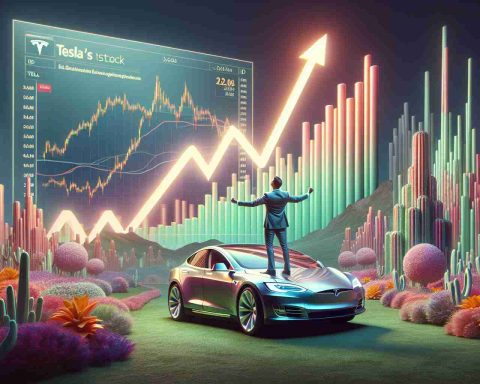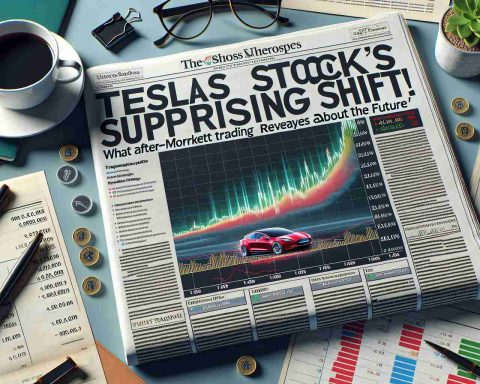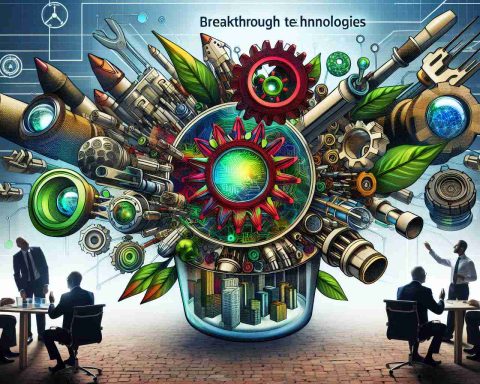President Donald Trump has initiated a significant shift in U.S. automotive policy, challenging the Biden administration’s strategies aimed at promoting electric vehicles (EVs). A series of executive orders were recently signed, targeting what Trump labels the “electric vehicle mandate.”
One key aspect of these orders is the termination of waiver programs that permitted states, including Colorado, to impose stringent vehicle emissions standards. The Trump administration is now contemplating eliminating subsidies that it deems favor EVs at the expense of other technologies. Additionally, several climate-related actions from the previous administration have been rescinded.
Meanwhile, Colorado stands out as a leader in adopting zero-emission vehicles. The state has actively enhanced EV infrastructure, including fast charging stations to mitigate consumer concerns about battery range. Recent regulations now require auto dealers to stock a more significant number of electric and plug-in hybrid vehicles, aiming to boost their percentage on dealer lots significantly by 2032.
Despite Trump’s actions, the demand for EVs remains high. However, adjustments in federal rebates and incentives pose challenges for both consumers and dealers. Existing rebates have recently been reduced, which may slow down overall adoption rates.
While some predict a slowdown in the EV market due to changes in federal policy, industry experts believe the transition towards electric vehicles is still inevitable, driven by a global market that continues to prioritize sustainable technologies.
Shifting Gears: The Broader Implications of U.S. Automotive Policy Changes
The recent pivot in U.S. automotive policy under President Trump represents more than just a shift in electrical vehicle (EV) promotion; it signals potential upheaval within the broader societal and economic landscape. As reliance on fossil fuels persists, automakers and consumers alike face increasing pressure to adapt. This climate of uncertainty may result in uneven progress towards sustainability, disrupting an evolving industry that increasingly prioritizes environmentally conscious practices.
The potential consequences of these policy changes extend into global markets. Countries worldwide are ramping up their investments in green technologies, often supported by favorable policies and consumer incentives. If the U.S. abandons its leadership role in the EV market, it risks falling behind nations like China and several European countries that are setting ambitious targets for zero-emission vehicles. Emerging economies may also follow suit, further complicating the competitive landscape for U.S. automakers.
From an environmental standpoint, the rollback of emissions standards could exacerbate air quality issues and undermine efforts to combat climate change. The transition to sustainable transport is intrinsically linked to broader environmental health, and setbacks in this arena could have dire consequences for future generations.
In sum, while immediate effects may paint a picture of stagnation in the EV market, the long-term significance of these policy ambiguities could precipitate transformations in consumer behavior, market dynamics, and international competitiveness that resonate for decades. As the conversation around sustainable automotive technologies continues, the stakes for both the U.S. economy and the planet remain high.
Trump’s Shift in U.S. Automotive Policy: The Future of Electric Vehicles in Question
Overview of the Shift in Automotive Policy
President Donald Trump has initiated a major overhaul of U.S. automotive policy that directly challenges the Biden administration’s focus on promoting electric vehicles (EVs). Through a series of executive orders, the former president has introduced significant changes aimed at rolling back certain environmental protections and incentives that encourage the adoption of EV technology. This new policy framework is poised to impact automakers, dealers, and consumers across the nation.
Key Changes in Policy
One of the most significant components of Trump’s executive orders is the termination of waiver programs allowing states, such as Colorado, to impose their emissions standards, which are often stricter than federal requirements. This move is seen as a way to curb the momentum that states have gained in pushing for cleaner vehicle standards.
Additionally, the Trump administration is evaluating the elimination of federal subsidies that favor electric vehicles, asserting that such incentives skew the market against alternative technologies. This pivot away from encouraging EV adoption will potentially slow the rapid growth seen over the past few years.
Impact on Colorado’s EV Leadership
Colorado continues to lead in adopting zero-emission vehicles despite the federal shift in policy. The state has made substantial investments in EV infrastructure, including the installation of fast charging stations that alleviate consumer concerns regarding battery range and accessibility. Moreover, recent state regulations mandate that auto dealerships increase their inventory of electric and plug-in hybrid vehicles significantly by 2032, ensuring that consumers have better access to these technologies.
Demand for EVs Remains Strong
While Trump’s policy changes may influence the incentives available to consumers, the demand for electric vehicles remains robust. Analysts highlight that the global market’s trend toward sustainability and renewable energy sources will likely continue to propel EV adoption. Industry experts predict that even with changes in federal rebates, the transition to electric vehicles is a pressing reality due to both consumer interest and global regulatory momentum.
Potential Challenges Ahead
Despite the ongoing demand for EVs, several challenges could arise from the altered policy landscape. The reduction of federal rebates and incentives may deter potential buyers and slow the growth of the EV market. Furthermore, auto dealers may face challenges in meeting state requirements for EV inventory amidst a declining federal support system.
Future Predictions
The EV market likely faces a complex road ahead. While there might be short-term disruptions due to policy changes, long-term predictions suggest that the automotive industry is heading toward electrification. The global push for cleaner technologies and stricter emissions regulations will continue to influence market trends and consumer preferences.
Conclusion
The recent policy changes initiated by the Trump administration mark a significant crossroads for the U.S. automotive industry. While there may be immediate effects on the adoption of electric vehicles, the drive towards sustainability is expected to withstand political shifts. Both consumers and industry stakeholders should stay informed about ongoing developments to navigate this evolving landscape effectively.
For more insights on the future of electric vehicles and automotive policy, visit Edmunds.

